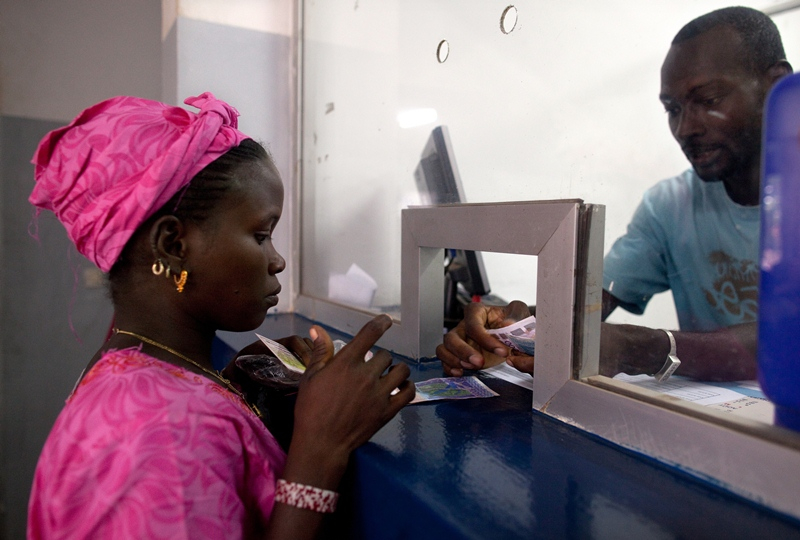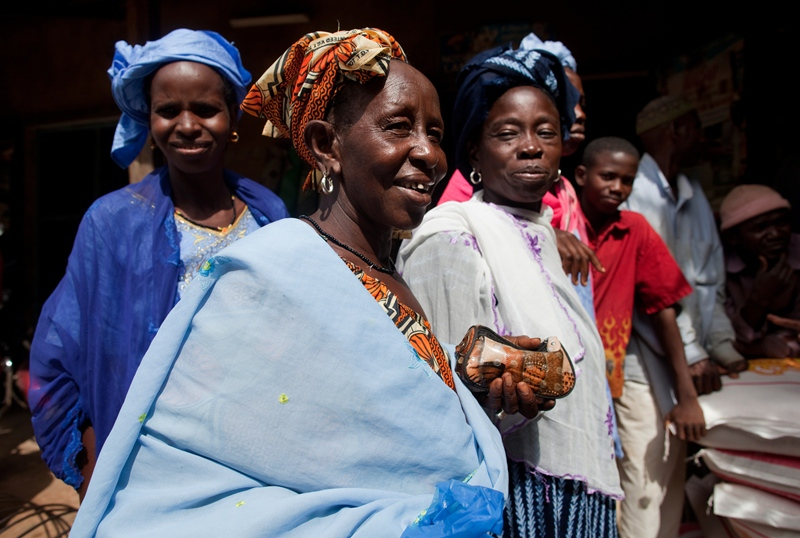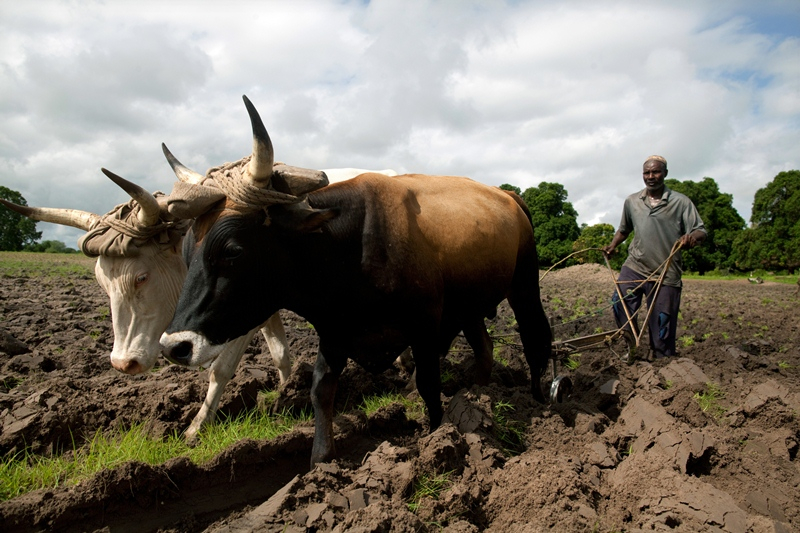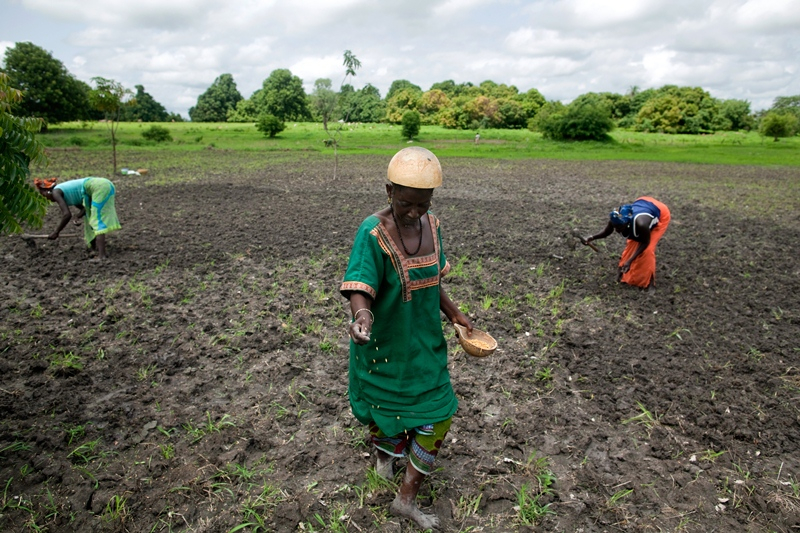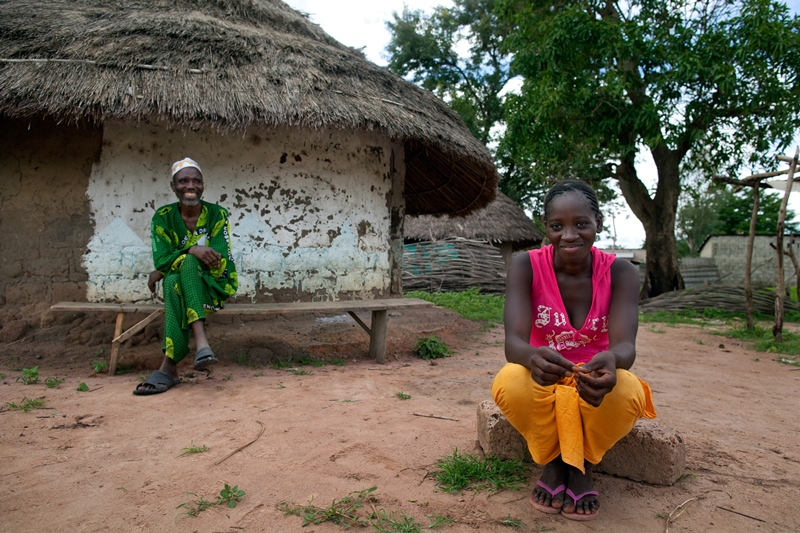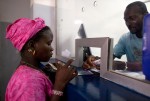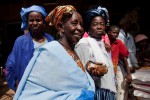Sahel food crisis: Cash, and a glorious moment
Stevens recently returned from the Kolda region of Senegal which – like much of the western Sahel region of Africa – is experiencing a severe food crisis. This is the second of four blogs.
At dawn in the marketplace in the southern town of Kolda, all I can hear are crickets and birds and from time to time the bleat of a goat. A dog—lean as a greyhound—trots silently past the shrouded tables and shuttered storefronts on a mission that doubtless involves food. But with the buzz of a motorbike and the rumble of a truck, the delicate sounds of the morning fade, and the lively commotion of trade takes center stage.
Although last year’s harvest was a disaster, food makes its way here to the market one way or another. Big trucks parked in the side streets are full of goods imported from other regions, and soon white vans arrive from the countryside, filled to bursting with people and whatever they’ve managed to raise or forage in the run-up to the next harvest.
In crises like this, aid groups traditionally deliver food and hand it out for free to those who lack the means to buy it, but that approach can undermine local farmers and vendors who are themselves struggling hard to feed their families.
So, as long as there is plenty of food in the market, we prefer to give out cash.
The people identified by their communities as most in need of assistance, including widows and disabled and elderly people with dependents, receive a voucher card from our local partner that they present with ID to a teller at a local credit union—who then hands them enough money to feed their household for a month (about $8/person).
On a cash-distribution day in Kolda, I watch several women accept their funds, and meet with them outside afterward. Finally free of the round-the-clock worry that has gripped them since the crisis began, their relief is palpable.
I ask if they wish they had received food rather than cash, but no one does. They value the flexibility that cash affords them. “If we have cash, we can handle a medical problem if necessary,” says Ramatou Balde. She holds up a finger painfully swollen from infection—a casualty of the crisis, where for months there have been no resources to spare for medical care.
But a doctor’s visit is for another day. For now, these women have a glorious task: pick out the food of their choice in the market and go home and feed their hungry families.
Read more about Oxfam’s cash program in Senegal.
Read blogs about the situation in Senegal, how we are helping families protect their health, and more.
Read more about what Oxfam is doing in the food crisis across the western Sahel.
A request: Oxfam’s programs for this emergency are severely underfunded. Please help us with a donation if you can.

